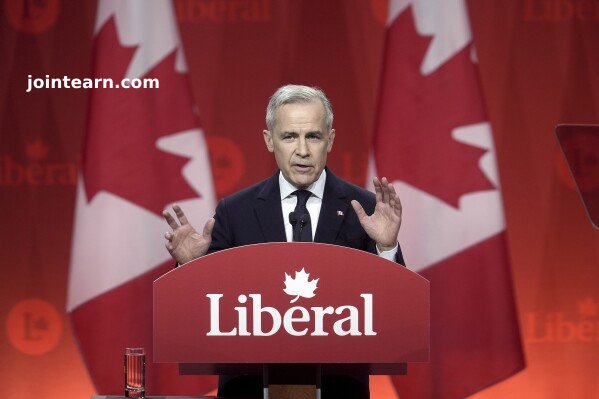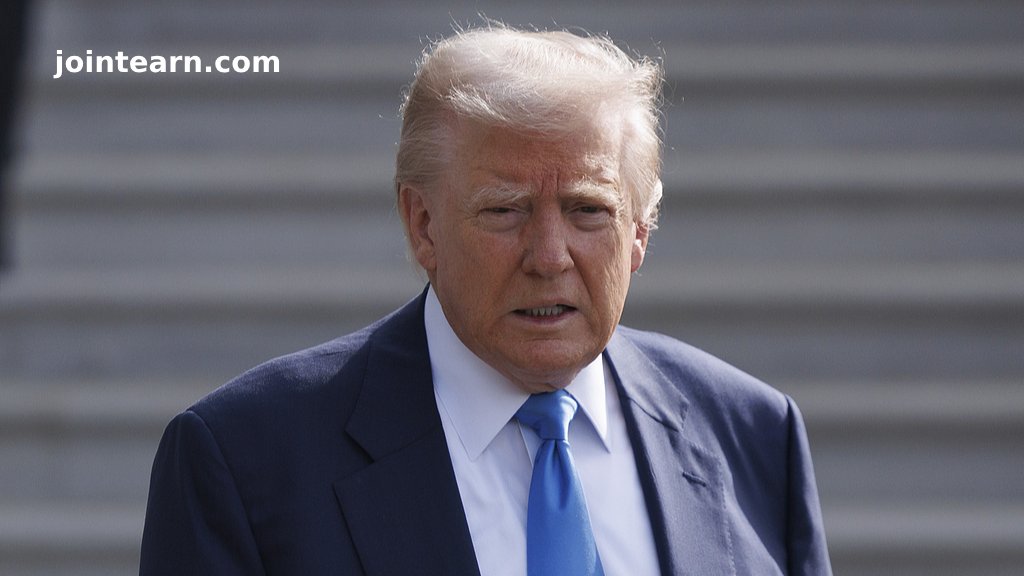In the national election held on April 28, 2025, Canadian Prime Minister Mark Carney led the Liberal Party to a projected victory, securing another term in office despite the ongoing challenges posed by U.S. President Donald Trump’s aggressive trade policies.
The Canadian Broadcasting Corporation (CBC) has yet to confirm whether the Liberals will secure enough seats to form a majority government, but the forecast points to an extension of their decade-long reign. Carney, a former central banker with extensive experience managing economic crises, asserted his commitment to stand strong against President Trump’s rhetoric and policies, which have strained the U.S.-Canada relationship.
Mark Carney’s Resilient Leadership Amid U.S. Tensions
Mark Carney’s leadership has been central to the Liberals’ ability to navigate an increasingly hostile trade environment, with Trump’s repeated comments suggesting Canada could become the 51st U.S. state. “President Trump is trying to break us, so America can own us. That will never, ever happen,” Carney declared to his supporters following the victory projection.
The Canadian election, heavily influenced by Trump’s trade wars and inflammatory remarks, has significantly shaped the political landscape in Canada. Carney emphasized that Canada must now focus on its own interests as the traditional alliance with the U.S. is no longer as reliable as it once was. “We have to look out for ourselves,” he said, reinforcing the need for Canada to remain independent and resilient in the face of external pressures.
Opposition Leader Pierre Poilievre Concedes Defeat
In a contrast of political approaches, Conservative leader Pierre Poilievre, who had gained popularity earlier in the year due to public dissatisfaction with the Liberals’ handling of inflation and immigration, conceded defeat. Despite the loss, Poilievre called the Liberal Party’s victory a “razor-thin minority government” and vowed to hold them accountable in the upcoming parliamentary term.
Poilievre, who had adopted a “Trump-lite” political stance, struggled to maintain momentum as Canadians reacted to Trump’s provocative remarks. His criticisms of the Liberal government, particularly regarding rising crime rates and disorder, were overshadowed by concerns over the growing influence of the U.S. on Canada’s political and economic sovereignty.
A Leader Prepared for Crisis: Carney’s Uniquely Positioned Role
Mark Carney’s extensive background as an economic leader has positioned him uniquely to address the challenges posed by global economic uncertainty and Trump’s trade policies. Having served as the Governor of the Bank of Canada during the 2008 financial crisis and the Bank of England during the Brexit process, Carney’s expertise in managing crises was a key component of his campaign.
His leadership qualities were showcased during the 37-day campaign, where Carney presented a vision of strengthening Canada’s economy within the G7 nations, drawing on his proven track record to assure voters of his ability to manage economic turmoil effectively.
Trump’s Influence on the Canadian Election
The impact of President Trump’s remarks was evident throughout the election. Trump’s repeated claims that Canada should become the 51st U.S. state only intensified national pride and unity among Canadians. Both Carney and Poilievre issued stern rebukes to Trump, with Carney affirming that “Canada will always be proud, sovereign, and independent” in the face of such claims.
Voter sentiment reflected the growing concern over U.S. influence, with one Toronto resident mentioning that they voted Liberal partly because Poilievre’s political approach was too reminiscent of Trump’s divisive tactics. “Mini-Trump” was a common criticism aimed at Poilievre, who had gained support among populist factions of the Conservative Party.
Global Reactions and Future Prospects
Former U.S. President Joe Biden congratulated Mark Carney and the Liberals, expressing confidence in Carney’s leadership abilities to uphold the shared values and interests of both Canada and the U.S. Meanwhile, President Trump remained silent on the election results, continuing to push his vision of Canadian-American integration.
As Canada braces for the next chapter in its political history, Carney’s leadership will be tested by ongoing trade challenges, domestic economic pressures, and the need to safeguard Canada’s sovereignty amidst global and regional uncertainties.












